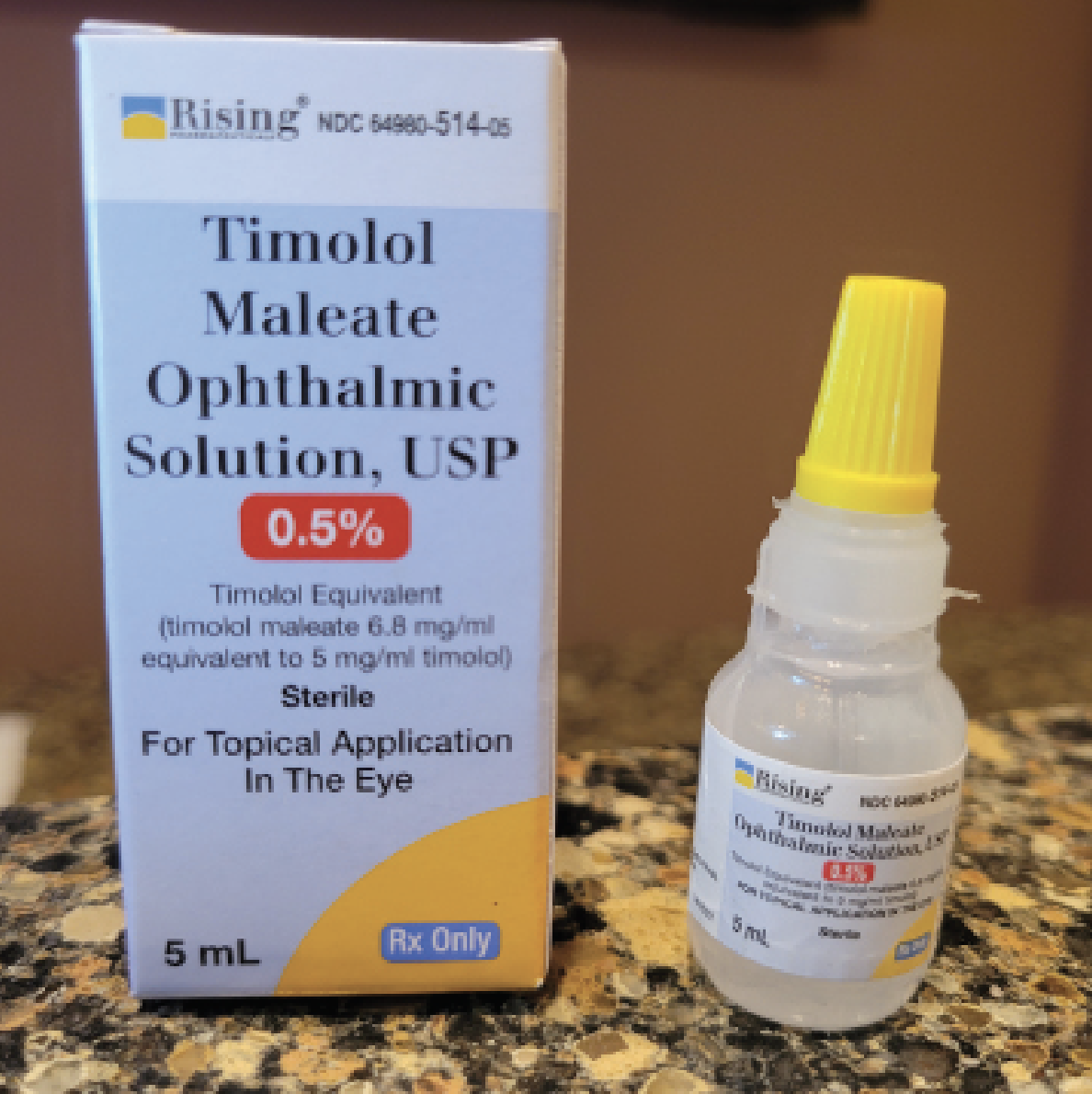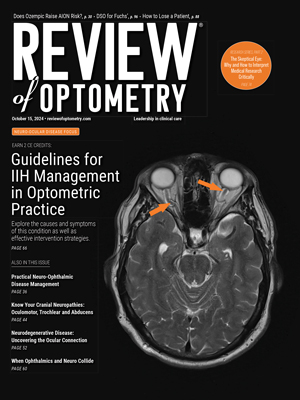 |
Q:
I have a patient who has early glaucoma and a “heart condition.” I am hesitant to start a beta-blocker, but should I be?
“Recently, two different practitioners asked me whether they could use a topical beta-blocker to treat their patient’s open-angle glaucoma (OAG),” says Richard Madonna, OD, professor of optometry at SUNY College of Optometry and glaucoma expert. “One of the patients had a history of a relatively recent but mild myocardial infarction, while the other had hypertension and symptomatic ischemic heart disease.” Questions on this usage can arise from time to time, so a review may be helpful.
Beta-blockers prevent the neurotransmitters norepinephrine and epinephrine from binding to beta-adrenergic receptors. Their primary use is in the management of cardiovascular disease. They treat ischemic heart disease by binding to beta-1 receptors in the heart, reducing heart rate and contractility, which reduces the demand for oxygen by the heart and improves coronary blood flow. This makes the heart more efficient and decreases ischemic symptoms (angina). Blood pressure is reduced by the slowed heart rate, the reduced force of blood being pumped by the heart and the blockade of beta-2 receptors in blood vessels, which causes vasodilation. Beta-blockers also influence beta-receptors in the lungs, leading to bronchoconstriction and difficulty breathing in susceptible individuals. Central nervous system effects such as depression, drowsiness and lethargy have also been noted but tend to be less frequent or significant.
 |
|
A careful case history will allow you to prescribe beta-blockers with confidence. Click image to enlarge. |
Potential Contraindications
Topical beta-blockers lower intraocular pressure (IOP) by reducing aqueous production via their effects on beta-receptors in the ciliary body. They were first-line therapy for OAG since the approval of timolol in 1978 until they were supplanted by prostaglandin analog therapy around the turn of the current century. Beta-blockers remain one of the most frequently prescribed topical agents because of their efficacy, excellent local side effect profile, once (or twice) per day dosing, generic availability, nominal cost and efficacy when added to prostaglandin analog therapy. However, topical beta-blockers can be absorbed into the bloodstream and affect other tissues by causing unwanted beta-blockade. According to Dr. Madonna, topical beta-blockers are contraindicated when treating patients with bradycardia, second- and third-degree heart block and uncompensated congestive heart failure, where the cardiac effects of beta-blockade may cause significant adverse effects. “Note that these cardiac conditions do not include hypertension or ischemic heart disease, conditions in which beta-blockers are a mainstay of systemic treatment,” he adds. “There is no contraindication to the use of topical beta-blockers in glaucoma therapy in a patient with either of these conditions.”
“A bigger question for eye doctors,” says Dr. Madonna, “is the effect of systemic beta-blockers on IOP-lowering.” Most studies have shown that systemic beta-blockers lower IOP by less than 0.50mm Hg in patients who are not on topical beta-blockers. A recent population-based study showed that systemic beta-blockers lowered IOP by 0.33mm Hg.1 This small IOP reduction probably accounts for the lower odds ratio of having glaucoma in patients taking systemic beta-blockers as compared with those not on them.2 Physicians are also commonly confronted with patients taking systemic beta-blockers and wonder if it will reduce the efficacy of topical beta-blockers’ ability to lower IOP. While the literature is not completely clear on this, it appears that the IOP-lowering effect of topical beta-blockers is dampened when patients are on systemic beta-blockers, but the effect varies between individuals, the baseline IOP, and the type and dosage of the systemic beta-blocker.
“Topical beta-blockers remain a common glaucoma treatment, yet misconceptions about their use in patients with heart disease persist,” Dr. Madonna says. “Be aware of when topical beta-blockers are absolutely contraindicated but also when they are safe.”
Dr. Ajamian is board certified by the American Board of Optometry and serves as Center Director of Omni Eye Services of Atlanta. He is vice president of the Georgia State Board of Optometry and general CE chairman of SECO International. He has no financial interests to disclose.
1. Vergroesen JE, Schuster AK, Stuart KV, et al. Association of systemic medication use with glaucoma and intraocular pressure: The European Eye Epidemiology Consortium. Ophthalmology. 2023;130(9):893-906. 2. Leung G, Grant A, Garas AN, et al. A systematic review and meta-analysis of systemic antihypertensive medications with intraocular pressure and glaucoma. Am J Ophthalmol. 2023;255:7-17. |

